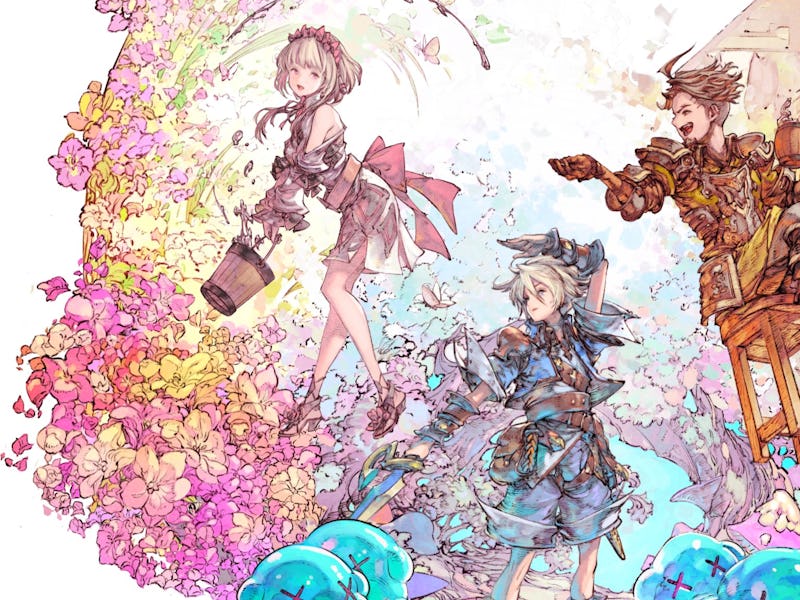
Nothing is original. Tropes — established concepts that frequently appear in anime, films, books, and other media — can hook in audiences, but that’s all they do. Once audiences get past the familiarity, the anime or game might seem uninspired with little else to offer besides the same plotline or archetype that’s been regurgitated in countless other stories.
Despite some strengths in terms of combat and other RPG mechanics, that’s the problem with the RPG Trinity Trigger. First released in Japan back in 2022, Trinity Trigger now comes west thanks to XSEED, the publisher of the Story of Seasons series. It’s hard to recommend over other RPGs, however, because of how hard it leans on the most tired of tropes, though.
The website TV Tropes chronicles various tropes across TV, film, anime, games, and everything in betwee. Even critically acclaimed anime-inspired video games like Persona 5 Royal make use of popular tropes and make them work by combining them with other surprising tropes or, in some cases, just straight-up surprises. Leaning too heavily on tropes becomes a problem when the story and characters aren’t used to say something more than the same old story.
In Trinity Trigger, these tropes feel like scripts and caricatures instead of unique creations.
Cyan, the main character, was born with a magical eye that sometimes glows red because he is secretly the chosen one. He’s an orphan, but not just any orphan. He’s technically double orphaned because he doesn’t know his real parents and his adoptive parents lost their lives before the start of the story. Firn, his pigtailed adoptive sister, serves as a spunky, supportive caretaker that is also probably in love with him. (If Trinity Trigger is like any of the other animes I’ve watched where the adoptive sister falls in love with the male protagonist, then she probably will just fuss over him all tsundere-like and not actually get together with him because he has the deductive reasoning skills of a rock.)
During one of Cyan’s adventures, he encounters a mysterious mascot character called Flamme, who saves him by turning into a magic sword that works on an otherwise impervious enemy. Flamme conveniently has amnesia, so he can’t tell Cyan any useful information.
You get the picture. Trinity Trigger builds a plot on a bed of anime cliches, including Cyan’s background as a parentless hero that fights using a shape-shifting sword. It’s an enticing premise, but the story isn’t doing much at the moment to reach beyond that. There’s no inner conflict about leaving his home, no previous desire to learn about his past, and hardly any chemistry between the main cast.
Elise, an Oracle from a clan that wants to snuff Cyan out, later explains to Cyan that he’s actually a God Warrior, a chosen proxy for the God of Chaos. Her partner, Oise, is a Trigger, the same kind of creature as Flamme. They later form a trio with Zantis, another unlikely addition from an opposing clan. At this point, the combat starts to pick up because you can switch between the three of them and play around with different weapons and skills, which is Trinity Trigger’s main strength.
I understand leaning on anime tropes because they’re so abundant and easy to accept for fans of the genre. Even I find the story serviceable and not necessarily bad. But it’s nothing special.
I’m still playing Trinity Trigger because it’s got enough going for it to keep me entertained between the story bits. It could turn around in the later half of the game, but I’ll remain skeptical until the narrative actually delivers some interesting surprises.
Trinity Trigger launches for PC, PlayStation 4, PlayStation 5, and Nintendo Switch on April 25, 2023.